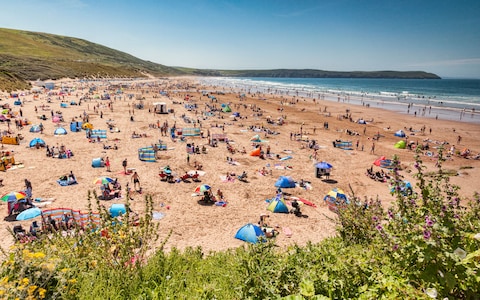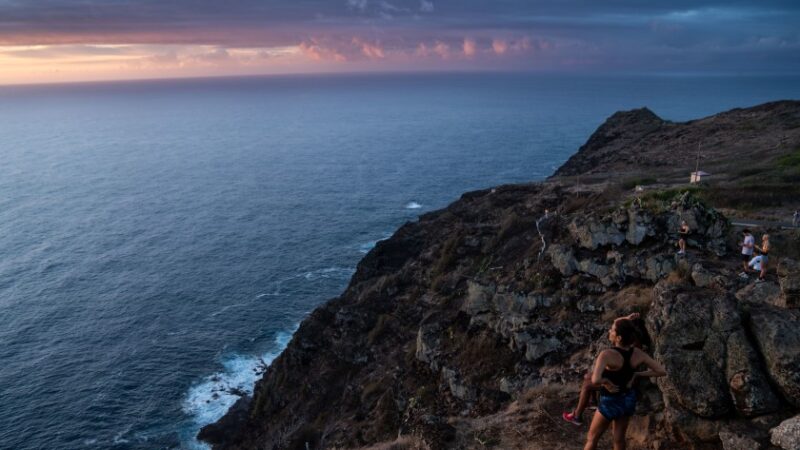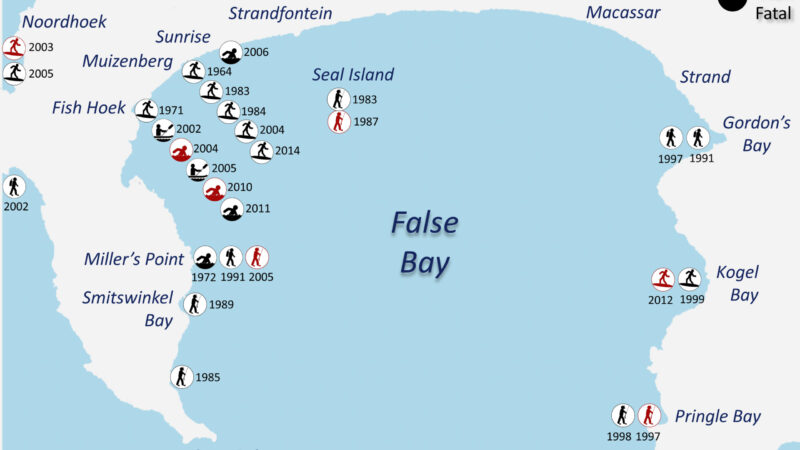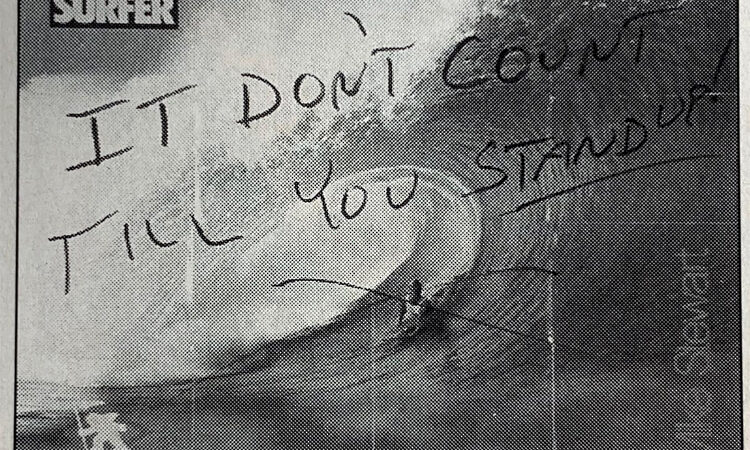Wednesday night’s thunderstorms had delivered long-awaited rain to North Devon but as we turned into the mist-dampened valley behind Woolacombe beach, blue skies awaited us. We had come to try some bodyboarding at one of the country’s favourite beaches, loved for its pounding waves, heroic cliffs, piles of golden sand, rockpools and river paddling.
As we followed the steady line of people walking from the car park to the sand, families carrying sea canoes tottered along the pavement and people streamed in and out of pasty shops. It had only been a couple of days since Devon and Cornwall police declared the South West “full” and yet, on a morning that once again proved sweltering, I couldn’t find anyone who had seen this family-run beach overcrowded.
“When photographers show a side-on view of the beach it always looks worse than it is,” said Suzie Parkin, of The Beachcomber Cafe (01271 871644), which has fine views and sits just above the sand. “This is a three-mile beach – it’s not crowded here. And Parkin Estates cleans it every morning.”
Suzie and her business partner took over the café two years ago, introducing vegetarian and vegan options that contrast with the fish‘n’chips and burgers offered elsewhere. She has put posters with Covid-related information above tables in the café but told me that they don’t really get read. “We are trying to limit it to one person at the counter but we get whole families coming up,” she said with a shrug. “We are quite relaxed here.”
As we unpacked our beach tent, a devilish seagull dive bombed a nearby woman, stealing a flake and a glob of ice cream out of her hand. Amid the laughter, the variety of accents we heard suggested that many families were here for longer than a day trip.
Social distancing was clearly evident on the sand and children had been busy digging trenches, with a good three metres between encampments. It was more difficult to maintain in the shallows, of course. Here, families in wetsuits – including mums and dads who were likely to be quite sensible people otherwise – caught waves together, swooshing past us with huge smiles on their faces. Everyone was clearly having a great deal of fun and, after months of boredom, confinement and stress, who could blame them.
Most people, I was told, are finding it more hygienic to bring their own wetsuits and boards to the beach these days. For those that don’t have them, Steve’s Surf Hire has an outlet above the sand and wetsuits that are “quarantined” for three days after use. This summer, Josh O’Toole has been playing caretaker at the shop, after Steve, the owner for 30 years, suffered a stroke. “We opened up in July and it was dead for the first few weeks,” Josh said. “It’s been packed since then, though, because no-one can go abroad. It’s a shorter season, but yeah, I think Steve’s done alright.” The surf schools here are all open now and the National Trust is even running a series of expert rockpooling tours, though space is limited to just six people a session.
When the sky took a moody turn in the afternoon, the more serious bodyboarders made for the surf while we and other families packed up and headed inland. When the heavens finally opened we were cruelly reminded that, in these times of coronavirus, you cannot just chance upon finding a table for dinner. Many restaurants have halved their number of tables and, when rain is pouring off the terrace canopies that were doing a fabulous job of shielding you from the sun just an hour ago, you are going to want one of the few that are inside.
No amount of hazy Devon Mist cider was going to keep us huddled under a parasol at The Red Barn (), where staff were quite rightly being strict on numbers allowed inside the venue. Instead, we scarpered to an 18- month-old development just up the road. Byron () – perhaps inspired by Australia’s hip beach town Byron Bay – is a modern holiday apartment building that blends in nicely. We found shelter in its roadside restaurant, Brundle’s, which is slightly upmarket, though still family-friendly, offering a smattering of Asian dishes that make use of local fish and seafood.
Once seated, steaming pots of Exmouth mussels in a Thai curry broth warmed us up. “We’re seeing our biggest numbers now since being open,” manager Luke Gharibian told me. “Guests tell me they were meant to be in places like Spain and Australia but instead they are enjoying themselves here.”
A spokeswoman from Visit Devon confirmed that booking in advance is now essential in these parts. “North Devon is incredibly busy,” she said.
“The restaurants, bars and cafes are all running at much less capacity due to the strict guidelines, so please do have second choice options too.”
She also told me that, in August at least, Woolacombe businesses are making up a good portion of the revenue that they lost when the virus first hit. Which made me feel somewhat better as I went home happy but entirely soaked through.






Recent Comments